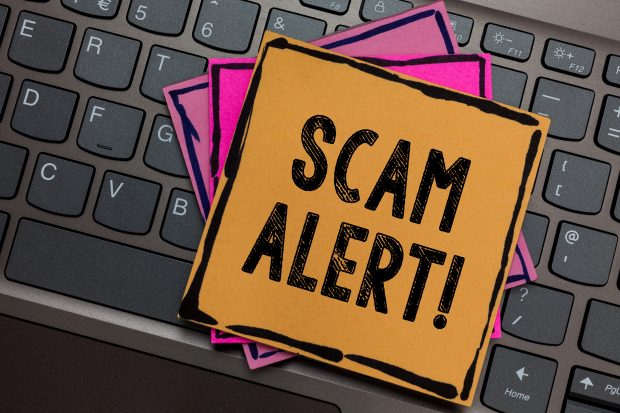Financial Exploitation Newsletter
February 2021
CREDIT/SOURCE: Judy Christman Yates, DPA, Criminologist
This complimentary newsletter is an educational resource with “links” on financial exploitation and behavior that may contribute to privacy concerns/financial exploitation. DISCLAIMER: Information and links are based on sites that appear to me as legitimate, but even I can be duped. If you find a problem, please let me know immediately, so that I can get the word out.
- Scammers cash in on COVID-19 vaccination confusion, 1/21/21,https://www.consumer.ftc.gov/blog/2021/01/scammers-cash-covid-19-vaccination-confusion Tips to help you avoid a vaccine-related scam, no matter where you live:
- Contact a trusted source for information. Check with state or local health departments to learn whenand how to get the COVID-19 You can also talk with your health care provider or pharmacist.
- Don’t pay to sign up for the vaccine. Anyone who asks for a payment to put you on a list, make an appointment for you, or reserve a spot in line is a scammer.
- Ignore sales ads for the COVID-19 vaccine. You can’t buy it- anywhere. The vaccine is only available at federal- and state-approved
- Watch for unexpected or unusual texts. If your health care provider or pharmacist has used text messages to contact you in the past, you might get a text from them about the vaccine. If you get a text, call your health care provider or pharmacist directly to make sure they sent the text. But scammers are texting, too. So don’t click on links in text messages – especially messages you didn’t expect.
- Don’t open emails, attachments, or links from people you don’t know, or that come unexpectedly. You could download dangerous malware onto your computer or phone.
- Don’t share your personal, financial, or health information with people you don’t know. No one from a vaccine distribution site, health care provider’s office, pharmacy, or health care payer, like a private insurance company or Medicare, will call, text, or email you asking for your Social Security, credit card, or bank account number to sign you up to get the
Stay connected to stay informed. Subscribe to consumer alerts from the FTC. When you do, you’ll get updates delivered right to your email inbox. If you know about a COVID-19 vaccine scam, let the FTC know at ReportFraud.ftc.gov. Or, file a complaint with your state or territory attorney general through consumerresources.org, the consumer website of the National Association of Attorneys General.
-
- Avoid Scammers Offering to Pay Your Rent,1/29/21, https://www.consumer.ftc.gov/blog/2021/01/avoid-scammers-offering-pay-your-rent. Whether someone you don’t knowcontacts you out of the blue, or you go looking for rental assistance, here are ways to protect yourself:
- Never give your Social Security, bank account, credit card, or debit card number to anyone who contacts you research the organization first, before you share your info.
- If you look online for help with your rent, search for the name of the groups you find, plus the words “scam,” “fraud,” or “complaint,” to see what others are saying. Do that before you contact
- Find out about local programs that offer rental assistance and other
- If you’re facing eviction, you still have rights. The first step in most evictions is a written notice. Check with your local court system for more details about the eviction process and your You also may qualify for free legal services and be able to speak to a lawyer to learn about your rights.
- Avoid Scammers Offering to Pay Your Rent,1/29/21, https://www.consumer.ftc.gov/blog/2021/01/avoid-scammers-offering-pay-your-rent. Whether someone you don’t knowcontacts you out of the blue, or you go looking for rental assistance, here are ways to protect yourself:
- Stimulus Payments for people, not nursing homes, 1/4/21, https://www.consumer.ftc.gov/blog/2021/01/stimulus-payments-people-not-nursing-homes
- If you, or someone you care about, lives in an assisted living facility or nursing home, read on. Because the bill funding the second round of Economic Impact Payments (EIPs)….
- And, like last time, the money is meant for the PERSON, not the place they might live.
- If you qualify for a payment, it’s yours to keep. If a loved one qualifies and lives in a nursing home or assisted living facility, it’s theirs to keep.
- The facility may not put their hands on it, or require somebody to sign it over to them. Even if that somebody is on Medicaid.
- If you hear about a nursing home or assisted living facility being grabby about Economic Impact Payments, tell your state attorney right away. And then tell the FTC at www.ReportFraud.ftc.gov.
- Get My Payment [Stimulus Payments], https://www.irs.gov/coronavirus/get-my-payment
-
- We’re [IRS] automatically reissuing second Economic Impact Payments for some taxpayers who don’t recognize the bank account information shown in Get My Payment. Also, payments will be issued by mail for other taxpayers who didn’t get a direct deposit because our records show their bank account is closed. Watch your bank account and mail for stimulus payment.
- Don’t Toss Out Your Stimulus Payment with the Junk Mail, 1/8/2021, https://www.aarp.org/money/taxes/info-2020/stimulus-payment-debit-cards.html
-
- In some cases, cards (and checks) may be going out to taxpayers who got the first stimulus payment by direct deposit. Filers who used TurboTax and other electronic tax services have been particularly affected Your EIP card will arrive in an envelope from “Money Network Cardholder Services.” Don’t throw it away thinking it’s junk mail or a scam. The Visa name will appear on the front of the EIP card; the back of the card has the name of the issuing bank, MetaBank, N.A. This round, the envelope will also have the Treasury seal to prevent people from throwing it away. Note that you can’t request you receive your stimulus payment by debit card – it either arrives that way or it doesn’t.










